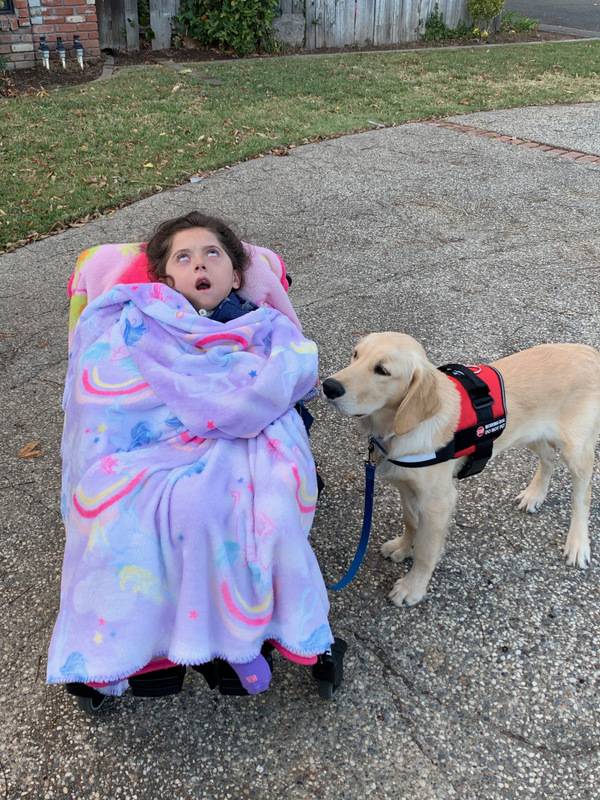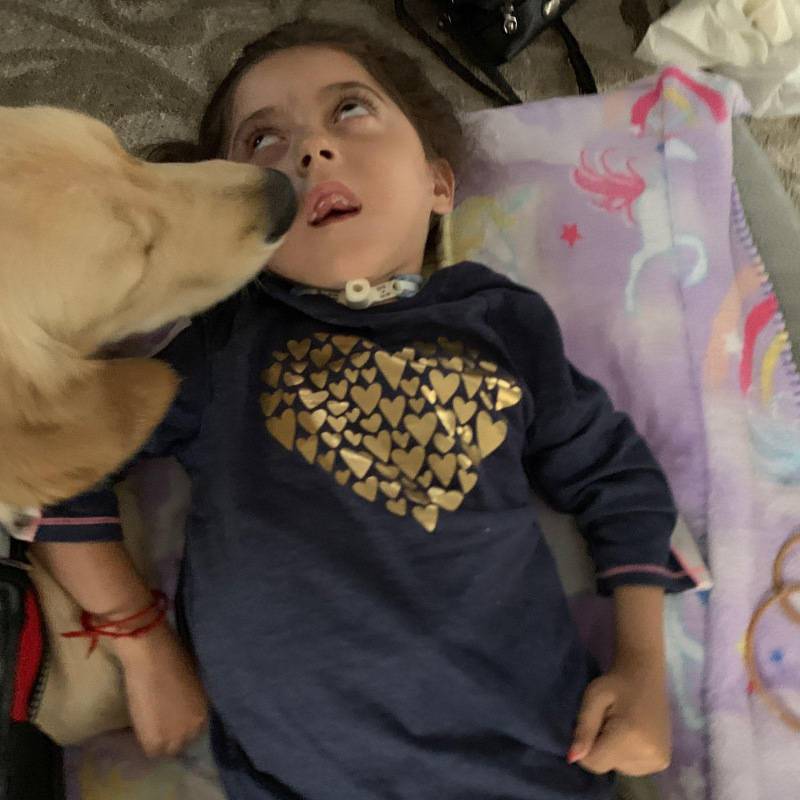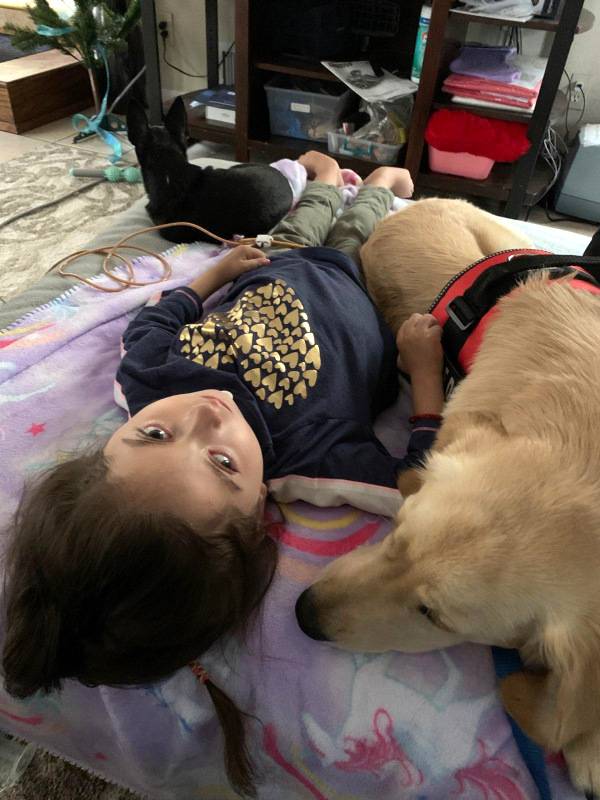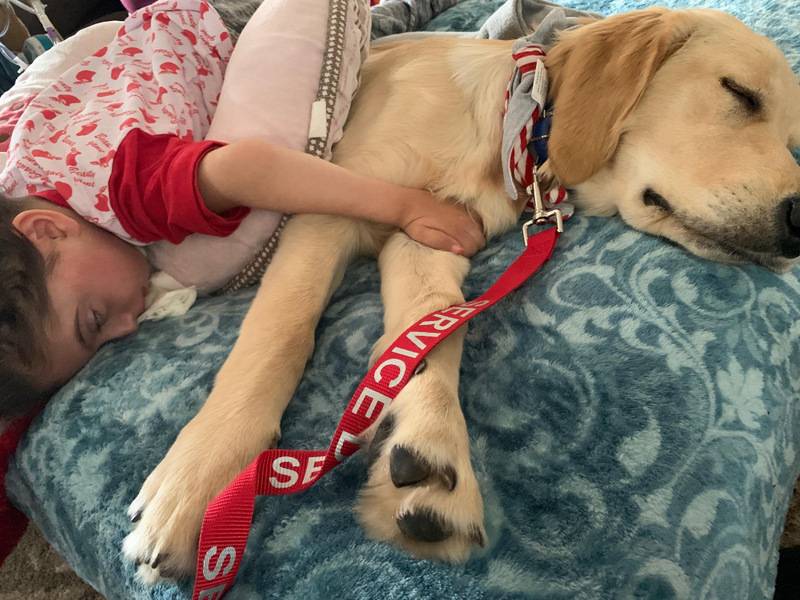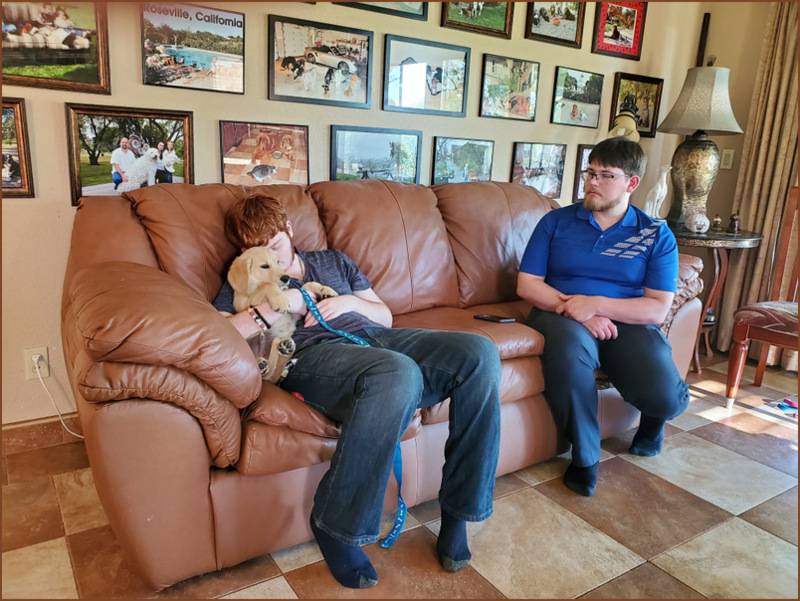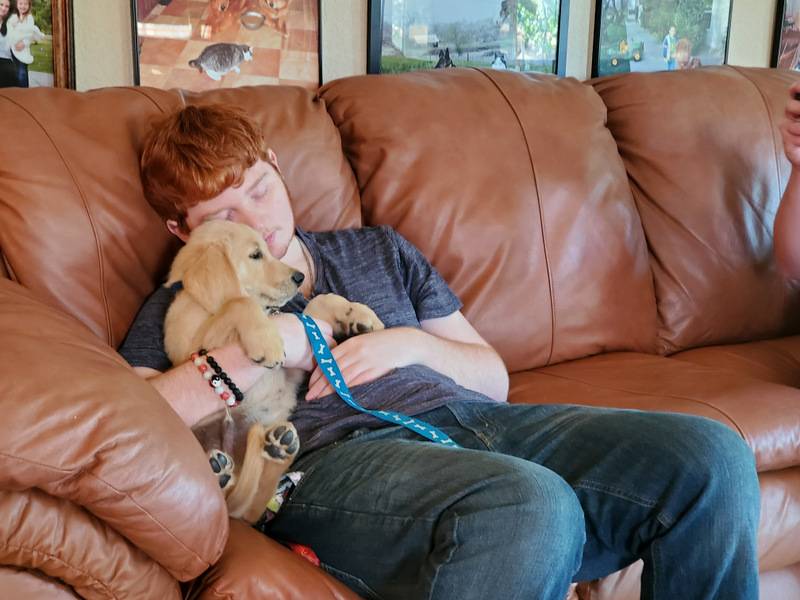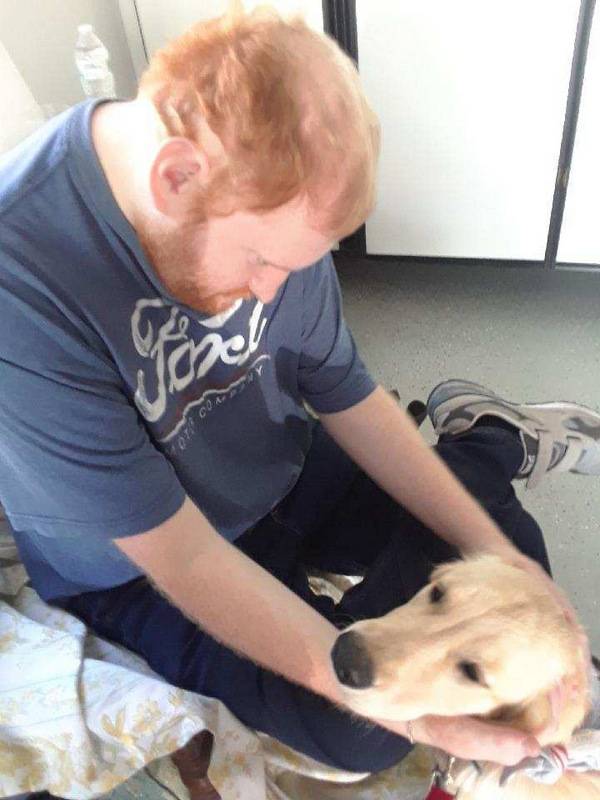Autism Support Dogs
Autism Support Dogs: Is a Service Dog or Therapy Dog Better?
It is a fact that pets benefit those with developmental disorders and mental health problems. This realization has led to a broader variety of training in animals, particularly in dogs.
It’s now possible to hone in on the specific needs of an individual and match these with the right dog. Dogs can help those with autism.
What’s important is to decide what kind of dog is right for your situation. That starts with an understanding of the differences between autism support dogs and therapy dogs. Here’s what you need to know.
Instructions for ‘How To Get A Service Dog’
1. Read our website.
2. Get to know us on Facebook and see 100’s of dogs we trained.
3. Submit a Service Dog Application
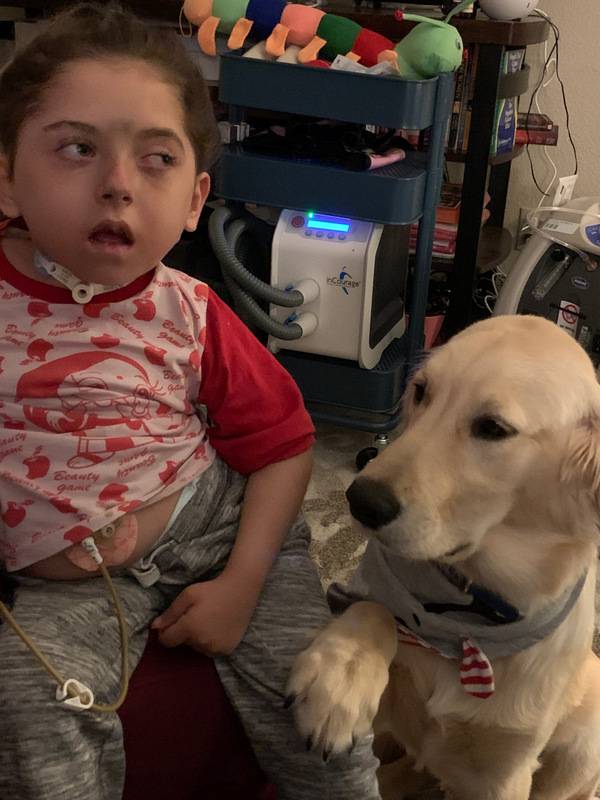
Some Things to Consider
There are important things to think about before taking the plunge and adding a new family member. Firstly, if your child has autism, you should establish if they like dogs.
It’s also possible that they or another family member may have allergies which could be made worse with the introduction of a dog into the home.
Dogs are a big commitment. Having one as a pet means you’ll need to consider all the implications. These are financial and practical. If you’re used to enjoying your freedom, you need to assess whether a dog would fit with your lifestyle.
You’ll also need to decide if you’d be happy handling a dog while caring for your child in public places.
Even with a highly trained service dog, this can be tough. A dog will be looking to you for instructions. direction, and commands. Your child may also need your full attention at the same time.
Autism Support Dogs
It could be that the needs of a person with autism could be better supported by a dog which has received specific training. These kinds of dogs can make a huge difference in daily life.
Service Dogs
These dogs undergo rigorous training. They also achieve official certification. These are related to the functions they can perform to help with the challenges that come with a person’s disability.
The law allows people to bring their service dogs into public areas. That includes restaurants and stores. Service dogs often wear a cape or harness to identify them — letting the public know they are working dogs.
Service dogs are trained according to the needs of those they’ll be helping. The more familiar examples could be someone with a mobility problem or someone who suffers from epilepsy or diabetes.
Specific Training to Help Those with Autism
These dogs can also be trained to help those with an anxiety disorder or a developmental disorder such as autism. An autism service dog would stay with a child to decrease anxiety during medical or dental visits, for example.
They could also accompany them during school activities, shopping trips, and when traveling. Some autism service dogs can be trained to identify and calmly interrupt self-harming behaviors. They can also assist in easing an emotional meltdown.
They’ll recognize and respond to signs of anxiety or agitation with a calming activity. This could be something like leaning against the child or adult and then tenderly laying across the lap of the person they’re caring for.
Safety Issues
There is some evidence that autism service dogs can provide a degree of safety to a child with autism. When tethered to a child, such dogs can minimize the risk of a child getting injured or lost.
These dogs can also provide monitoring at night. That can let parents be more confident that their child will remain safe whilst they’re asleep.
There’s also evidence that service dogs can help those with autism to learn more about emotional and social behavior. That could be because they act as a safe medium for a person with autism to practice their skills.
This could be something very simple like learning to feed the dog. Children with autism may also appear happier, and more willing to engage in positive social interactions. They may have fewer tantrums and improved confidence.
Therapy Dogs
Therapy dogs often have great social instincts and learned social skills. They can offer people emotional benefits and sensory interventions. Dogs share a love of patterns, structure, and repetition. This can work well with an autistic mind.
A very satisfying benefit of a therapy dog is its ability to bond quickly with a child.
Therapy dogs are often trained to offer affection and comfort in therapeutic situations. They will often work in hospitals, nursing homes, and other healthcare facilities. They can help with physical or occupational therapy.
They can also help to calm a patient undergoing a stressful medical procedure. Therapy dogs are also popular in the autism community due to their calming influence and ability to boost social interaction.
A lot of therapy dogs undergo special training. This does not apply to all therapy dogs, however. Some may just have a very loving and calm nature.
If therapy dogs work in a professional setting, they typically wear an identifying cape. Private owners may also use an identifying cape too. Unlike service dogs, therapy dogs do not have the same legal access to public places.
Companion Dogs
A well-trained companion dog could be another solution. They can have a calming influence on anyone who has autism. An affectionate dog offers love and friendship every day.
There are physical health benefits too. That’s because walking dogs means you’ll be taking exercise. That can also lead to social interaction with others, perhaps in local parks.
Having a dog also helps children to learn about responsibility and behavior. If you decide to go down this route, it’s wise to choose your dog carefully.
Your caring instinct may be to go for a rescue dog. Many though have unknown histories. They could have emotional and behavioral issues. The best advice would be to choose a breed that’s known for being patient and affectionate.
Finding the Right Match
Selecting the right animal means finding a dog that matches the needs of an individual. It will also need to fit in with the specific family dynamics and social situation. The whole process can require a lot of patience.
We hope you found the information about the ways autism support dogs can help individuals to be useful. Continue to read more related articles on our site. Find more details here about how service dogs can help those suffering from anxiety.
